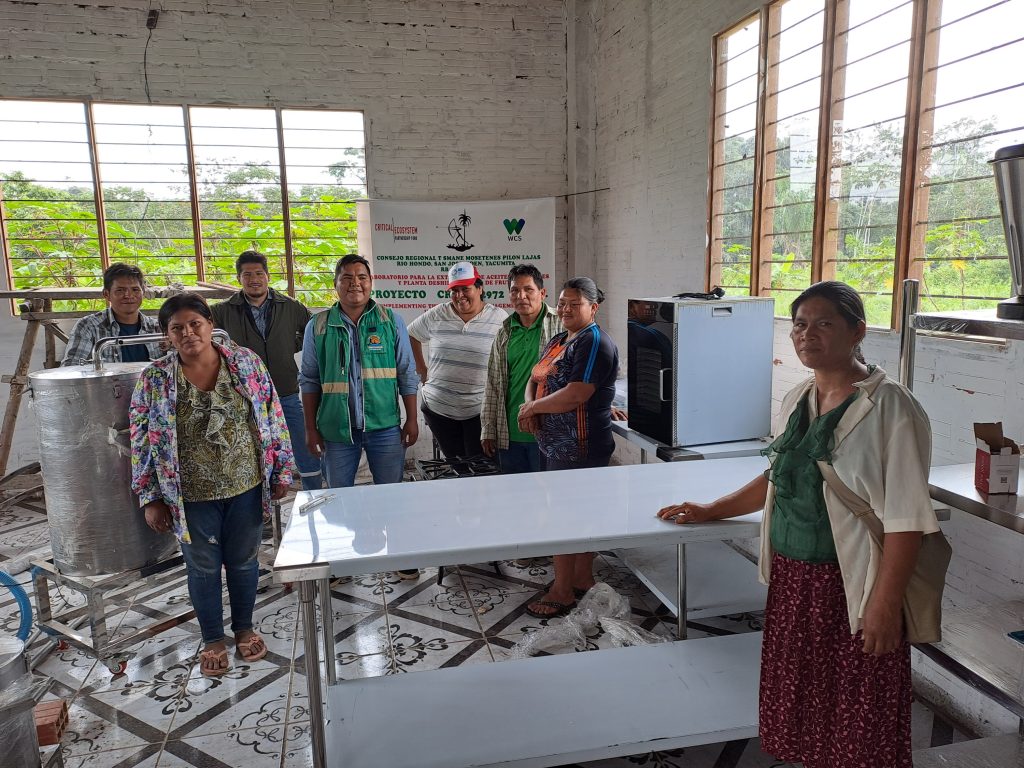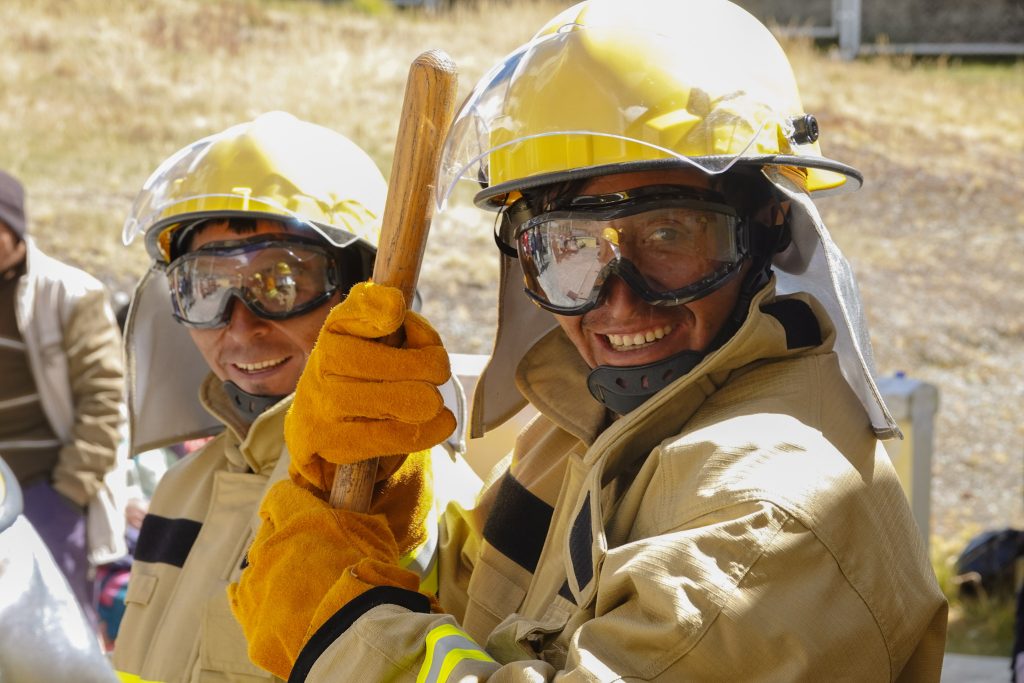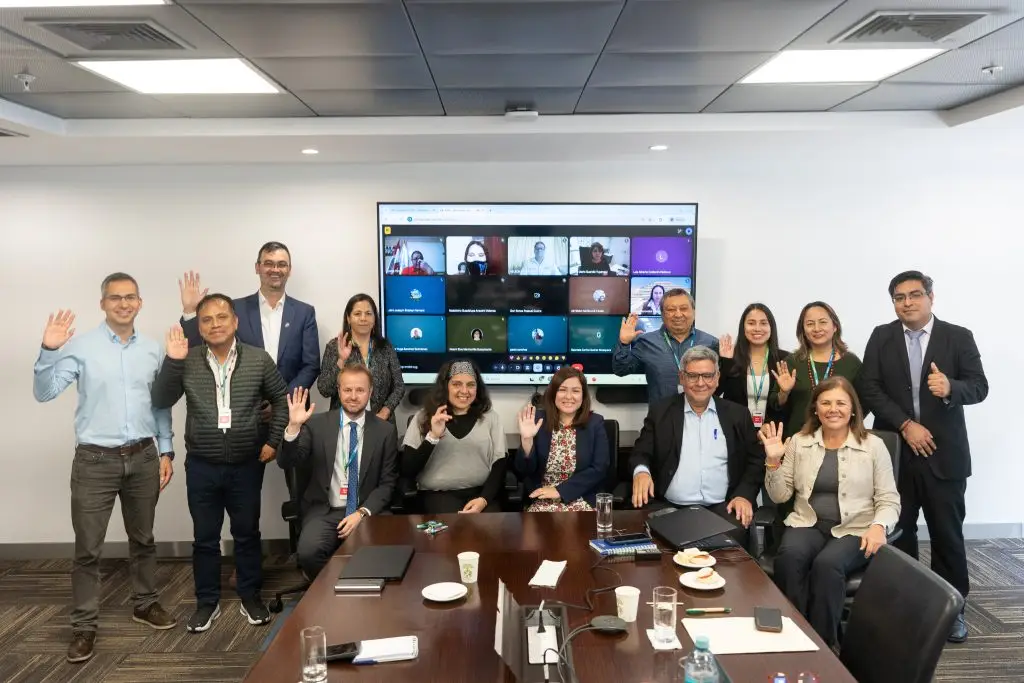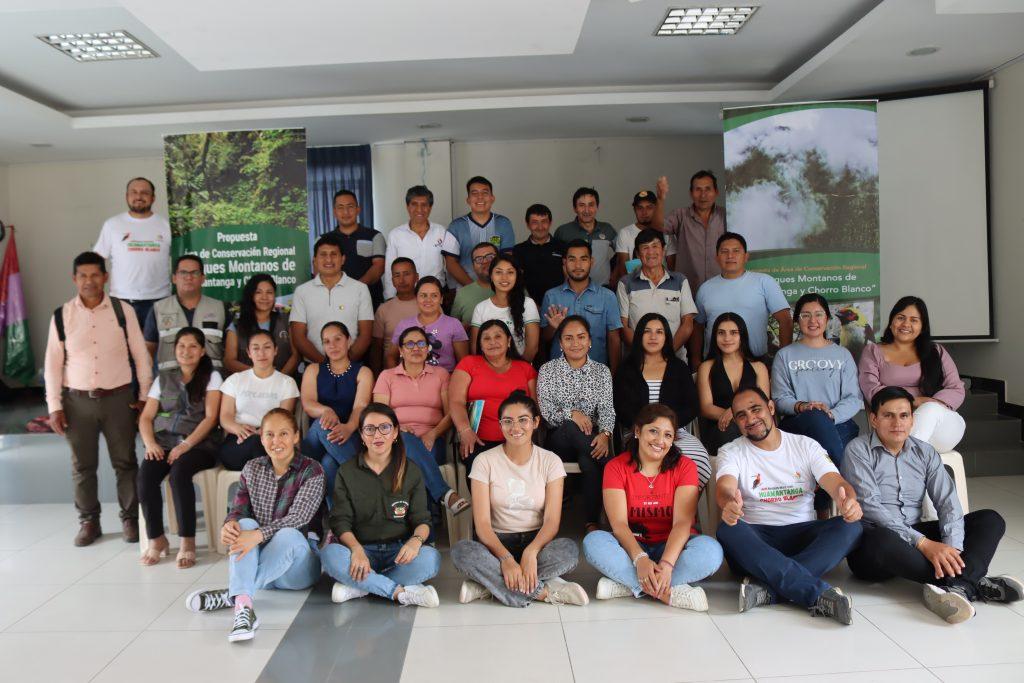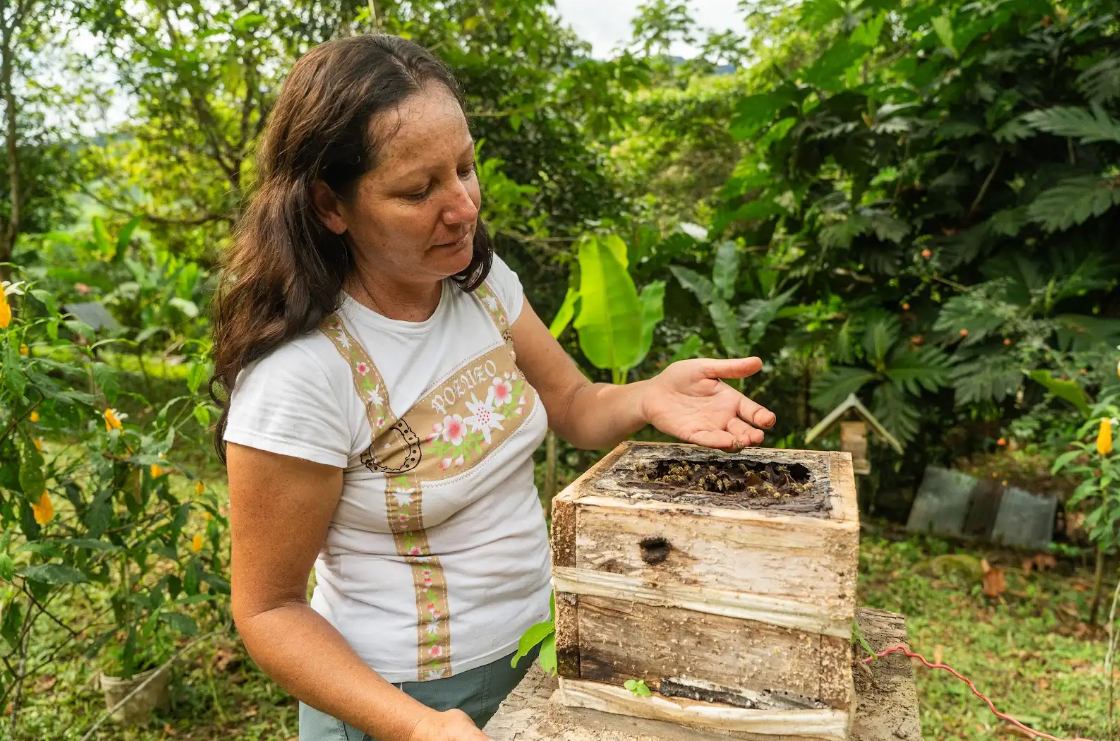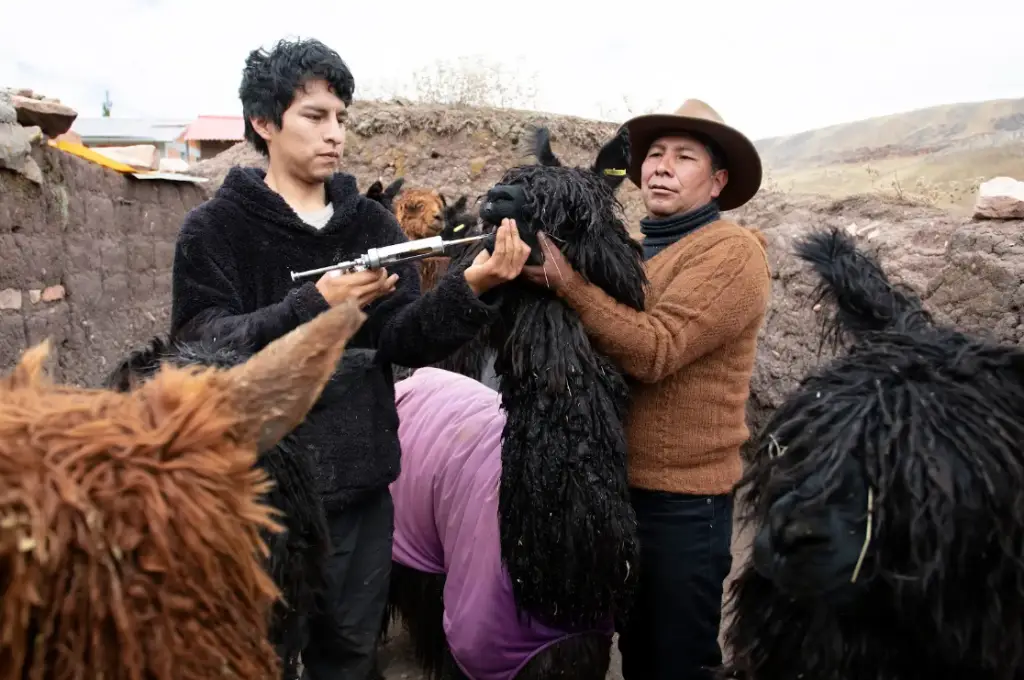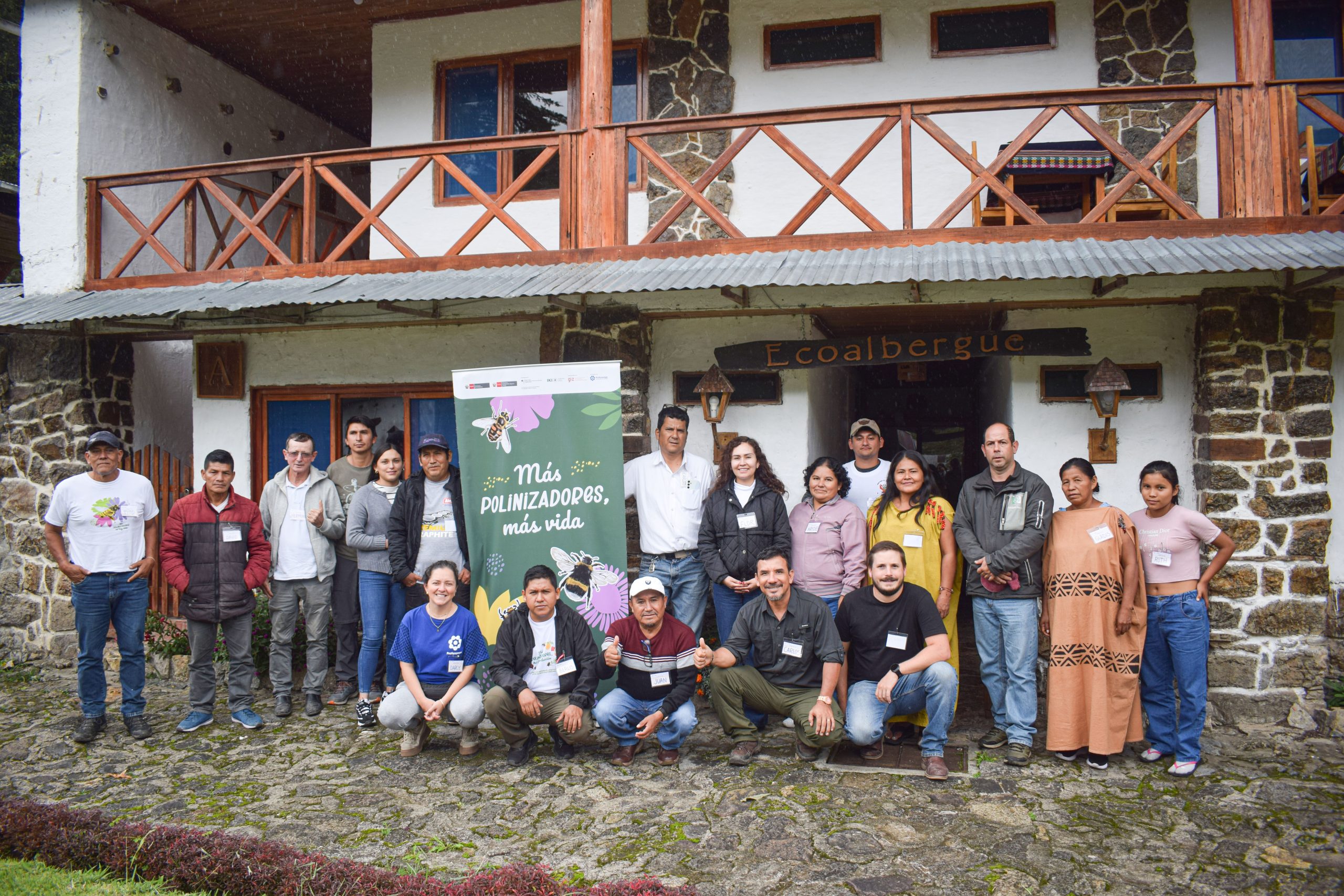One of the objectives of Phase III of the Critical Ecosystem Partnership Fund (CEPF) investment in the Tropical Andes Hotspot for Peru, Bolivia and Colombia was to ensure that project implementing partners have a component aimed at achieving progress in gender equality.
As a result, several of the initiatives dedicated efforts to capacity building and work to lay the foundations to ensure an empowered civil society, equitable participation and decision-making by stakeholders at all levels, and the sustainability of conservation impacts. This is the case of the following 3 projects that, in each of their territories and based on their own social contexts, took firm steps in the area of gender.
In Peru, it is important to highlight the work of the Yunkawasi organization, which had the task of executing the project called “Participative conservation planning and action in the Cordillera de Colán, Peru”, which increased the income of 6 women members of the Cordillera de Colán Agrarian Cooperative (CAC Colán), through the productive improvement of 30 hectares of coffee, achieved through 8 sessions of field schools and technical assistance during the harvest.
In addition, a total of 15 members of the CAC Colán were strengthened in their capacity to manage and control the quality of coffee. They received theoretical and practical training in agronomic and commercial aspects of the coffee production chain.
Daida Díaz Vilchez, a member of the CAC Colán, assures that the workshops were key because they provided them with knowledge that they did not have before, such as knowing the best techniques for coffee cultivation, the varieties and qualities that exist and, by putting into practice what they have learned, they have been able to improve their harvest.
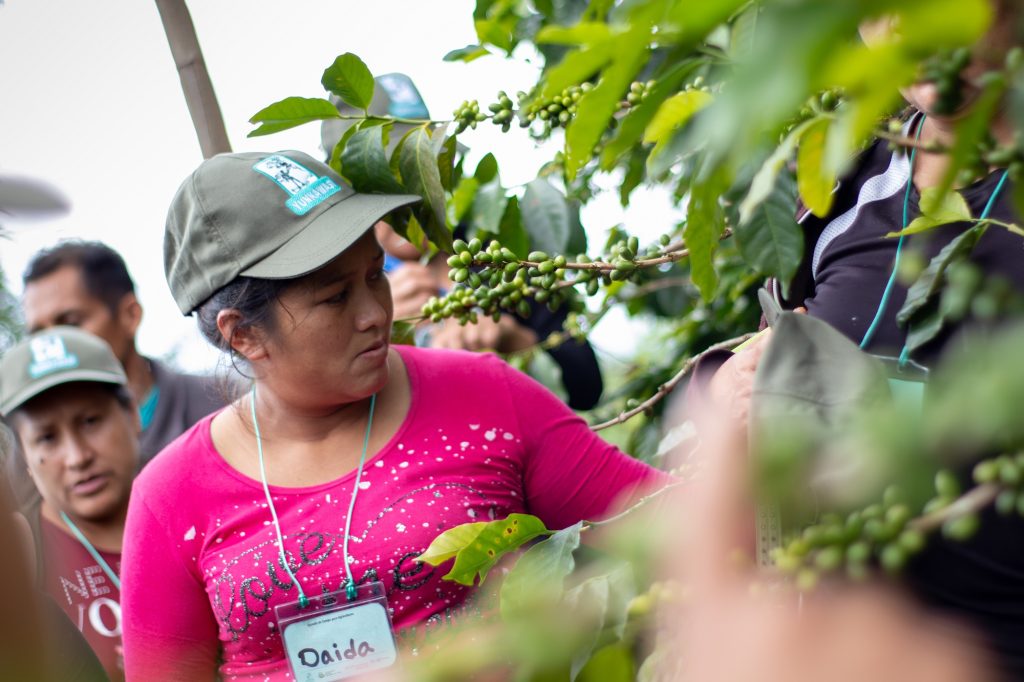
“As women we are also grateful for the talks and training on gender equality. We have talked and discussed our rights and they have given us a lot of support in this project,” says Daida.
In Bolivia, the project “Implementation of the Management Plan and Life Plan for the Pilón Lajas Biosphere Reserve and Indigenous Territory in Bolivia,” implemented by the Tsimané Mosetene Regional Council, also made significant progress in terms of gender equality.
Thus, a total of 40 indigenous women from 4 communities are carrying out the activity of extracting essential oils. To this end, they have been trained, have received equipment for the work and have managed to build a laboratory that is already in operation.
“Although we have not been able to work with all the communities, we have started with 4 in which women have been strengthened and now we know more about our rights. Within our territory we have 3 indigenous peoples and there is little participation of women, but thanks to this project we have been strengthened and united during this time”, emphasizes the vice-president of CRTM, Magaly Tipuni.
Finally, in Colombia, Calima Foundation has achieved gender equality through its initiative “Conserving 13 species of threatened amphibians in the Serranía de los Paraguas de Colombia”.
Through the project, training sessions were generated for learning about amphibian monitoring, aimed mainly at local stakeholders. Of the total number of participants (177), 88 were women, who benefited from practical and theoretical training.
“Our project gained a lot thanks to the increasing inclusion of women, who provided a different knowledge and a new perspective to work on amphibian conservation in the area (Serranía de los Paraguas),” explains Jhon Jairo Ospina-Sarria, project coordinator.
In addition, it is important to mention that, at the beginning of 2023, a workshop on gender equality was also held with members of the Calima Foundation, interns, members of Águilas Crestadas and the Serraniagua Corporation (6 women and 8 men).
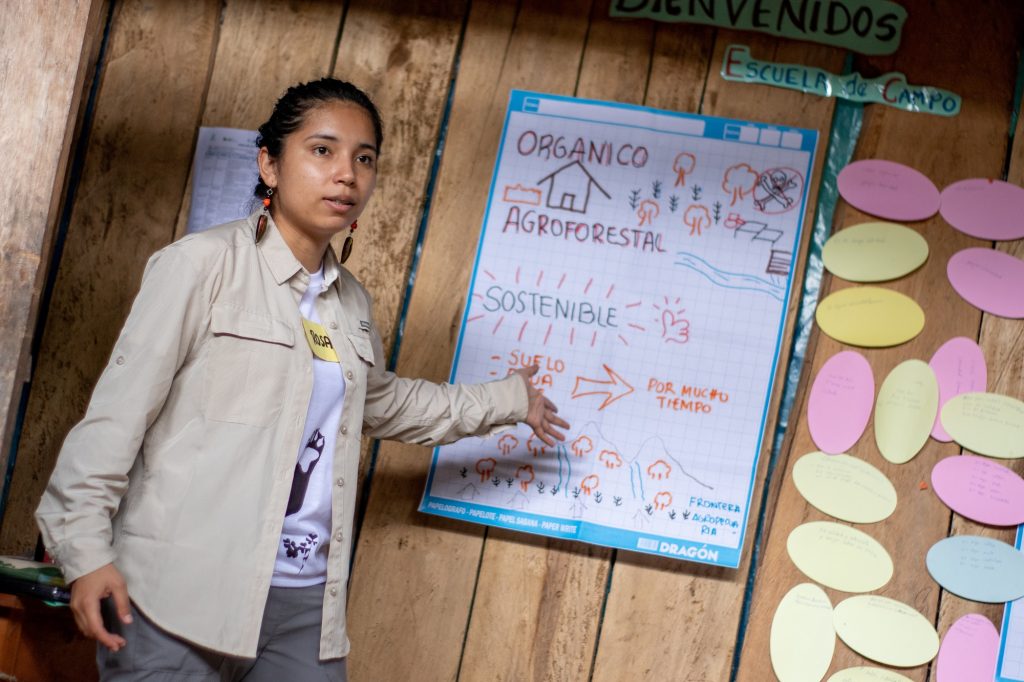
The efforts throughout the implementation of the initiative, as well as the work that the Calima Foundation had already started since 2019, resulted in an internal document (published in 2023) with guidelines to promote gender equality, inclusion and strengthening the participation and decision-making of women in activities in all projects developed and managed by the foundation.
The three projects mentioned above are just a sample of the importance of working on projects with a gender focus and a step forward to obtain important achievements in this area within the different Key Biodiversity Areas (KBA) of the Tropical Andes Hotspot.


